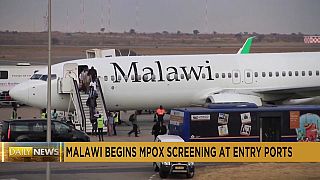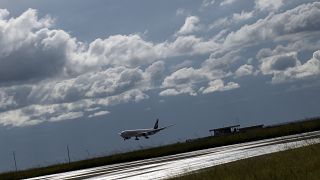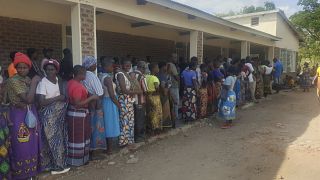Malawi
About 2.8 million people are grappling hunger in Malawi due to poor harvest caused by the El nino weather pattern.
Floods and drought have hit the country’s staple maize crop resulting to poor harvest in the region.
Cecilia Kaziputa is one such farmer who has not yielded much due to drought on the heels of floods.
“The government has always promised to give us coupons to buy subsidized fertilizer. But the coupons are in our houses now. We failed to buy because in some cases they said there is no fertilizer and also the price is high for poor people in the village. Decades ago the president then used to offer affordable prices for fertilizer to enable everyone access it and this is what the whole world would like to see,” Kaziputa said.
Malawi is said to be the hardest hit country affected by the prolonged dry spells in southern Africa further revealing the country’s inability to tackle food shortages, according to the United Nations World Food Programme (WFP).
Nevertheless, the country introduced a subsidy programme in 2005 to boost maize production.
“The major problem that we are experiencing because of this drought is malnutrition among our children. So many of them are seriously malnourished and they lack vitamins. We spend much time at the hospital with them. And this is pathetic,” said Mikison Mbewe a beneficiary of the Farm Input Subsidy Programme (FISP).
Food prices across the country have been rising due to reduced production and availability. The price of maize in the country is now 73 per cent higher than the three-year average for this time of year.
Desmond Phiri, an economist based in Malawi says, “Subsidy can only succeed if there is sufficient rain. Not too much, not too little. Fertilizers will do nothing if the soil is dry. So, there must be good water in the soil. If there are no rains at least water should come from irrigation. So when we tackle the subsidy thing we must look at the question of when there is no rain what do we do? The answer is irrigation.”
Meanwhile in Eastern Africa, Ethiopia is one of the hardest hit countries and is undergoing its worst drought in decades.
UNICEF fears that this is the worst drought in over a decade.












01:15
Morocco says 2024 was the hottest year with temperatures reaching 47.7 degrees
02:20
Morocco seeks to preserve traditional cooking and recipes through UNESCO project
01:18
Gaza Crisis: Water shortages worsen
Go to video
Gaza on the brink as aid ship attacked, fuel and medical supplies dwindle
Go to video
Tanzania bans agricultural imports from South Africa and Malawi
Go to video
Equatorial Guinea secures investment-grade rating — But for how long {Business Africa}